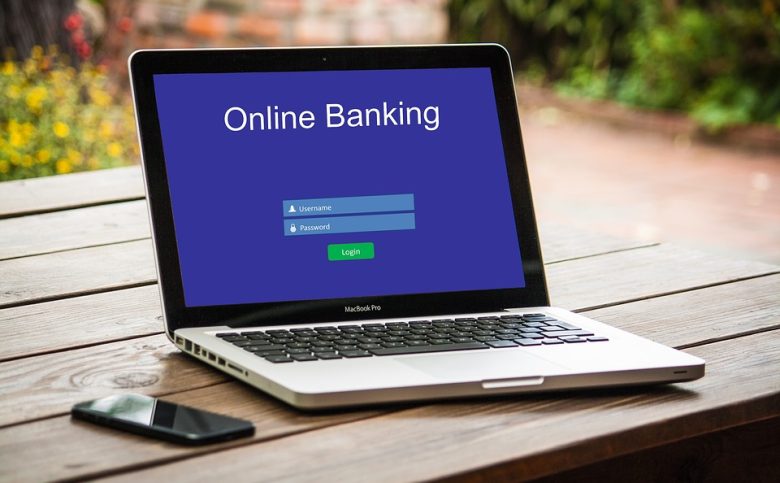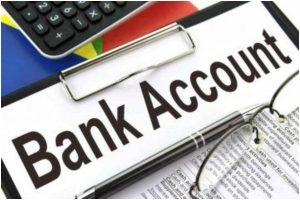Online banking (also called internet banking) allows you to access and manage your bank account from a computer, tablet, or smartphone. Customers can access their accounts through a secure website or mobile app without having to visit a physical branch. With just a few clicks, people can check their balances, transfer money, pay bills, and even deposit checks from the comfort of their own home. Today, online banking has become an integral part of everyday life, allowing people to manage their money easily and flexibly.
The Growth of Banking Services
Previously, people had to visit a branch during business hours to conduct transactions. This was often a hassle, especially for those with busy schedules or who found it difficult to travel to the bank. With the rise of the internet, banks began offering online services to help people better manage their finances. Online banking has advanced over time and now provides a wide range of services that can take the place of most banking tasks. The way we bank has changed over time, demonstrating that technology continues to transform the way we manage our money.
How to Use Online Banking
Banks offer secure digital systems that enable online banking. After registering, customers receive a username and password. They also have access to other security features, such as two-factor authentication. After logging in, users can view account information, transaction history, and other banking activity. To prevent fraud and unauthorized access, all information is encrypted. Because the system is both user-friendly and highly secure, users can rely on it with peace of mind.
Features of Online Banking
Online banking offers many advantages, making it easy to track your balance. Customers can view their account balances, bills, and expenses at any time. They can transfer money between their accounts or those of others, pay utility bills, and even set up automatic monthly payments. Many banks also offer the option of applying for loans, credit cards, and new accounts online. These features can save you time and offer more ways to manage your money more efficiently.
Benefits of Online Banking
Convenience is one of the biggest advantages of online banking. Customers have 24/7 access to their accounts, eliminating the need to wait in long lines or adjust to bank hours. Online banking also saves money by eliminating the need to visit a branch or pay extra fees for certain services. It also helps people stay organized by providing instant access to their spending history. Online banking is also convenient for everyday life, allowing you to quickly transfer money or make payments.
Security and Online Banking
Many people are concerned about the security of online banking, but banks use high-tech security mechanisms to protect their accounts. Encryption, secure login systems, and fraud monitoring are common methods for protecting transactions. Banks also encourage customers to use strong passwords and avoid logging in via public Wi-Fi networks. Online banking is just as secure as traditional banking, and in some cases even safer, as you need to carry less cash.
Businesses Can Bank Online
Online banking is crucial for both businesses and individuals. Businesses can use online banking to quickly and easily pay employees, track their expenses, and transfer money to suppliers. Businesses can also monitor their cash flow in real time, reducing the risk of errors or delays. Instant access to accounts helps businesses stay organized and competitive in today’s fast-paced market.
Problems with Online Banking
Online banking has advantages but also some disadvantages. Users without internet access or who are unfamiliar with technology may experience problems. Server outages or application errors are examples of technical glitches that can cause temporary inconvenience. Furthermore, even withadequated security, users should be aware of the risks of online scams and phishing. Even with these issues, the advantages of online banking generally outweigh the disadvantages.
Why Online Banking Is Useful for Everyone
Today, people crave quick and easy ways to manage their money, and that’s exactly where online banking comes in. It simplifies money management, offering benefits for students, professionals, families, and businesses alike. Online banking makes financial services more accessible than ever. You can pay bills, transfer money instantly, and more. It reduces paperwork, saves time, and gives you real-time control over your money, providing peace of mind.
Conclusion
Online banking isn’t a passing fad; it’s an integral part of modern financial life. It has changed the way we interact with banks, giving customers easier, more secure, and faster access to their money. Online banking offers many advantages, such as the ability to check balances, pay bills, apply for loans, and set savings goals. While it has its challenges, the benefits are undeniable. Online banking is a wonderful way to save time, reduce stress, and manage your finances.
FAQs
1. What does online banking mean?
Online banking is a digital service that allows people to manage their bank accounts online via a computer or mobile device.
2. Is online banking safe?
Yes, banks have implemented strong security measures, including encryption and fraud detection. Customers should also use strong passwords and avoid unsecured networks.
3. Can I pay my bills through online banking?
Yes, most banks allow you to pay utility bills, credit cards, and other expenses directly through their online banking services.
4. Do I still need to visit a branch after setting up online banking?
You can usually do almost all of your banking online, but some complex services may require an in-person visit.
5. What is the difference between online banking and mobile banking?
Online banking requires a computer or device with a web browser, while mobile banking uses a dedicated smartphone app for easier access to your accounts anytime, anywhere.




